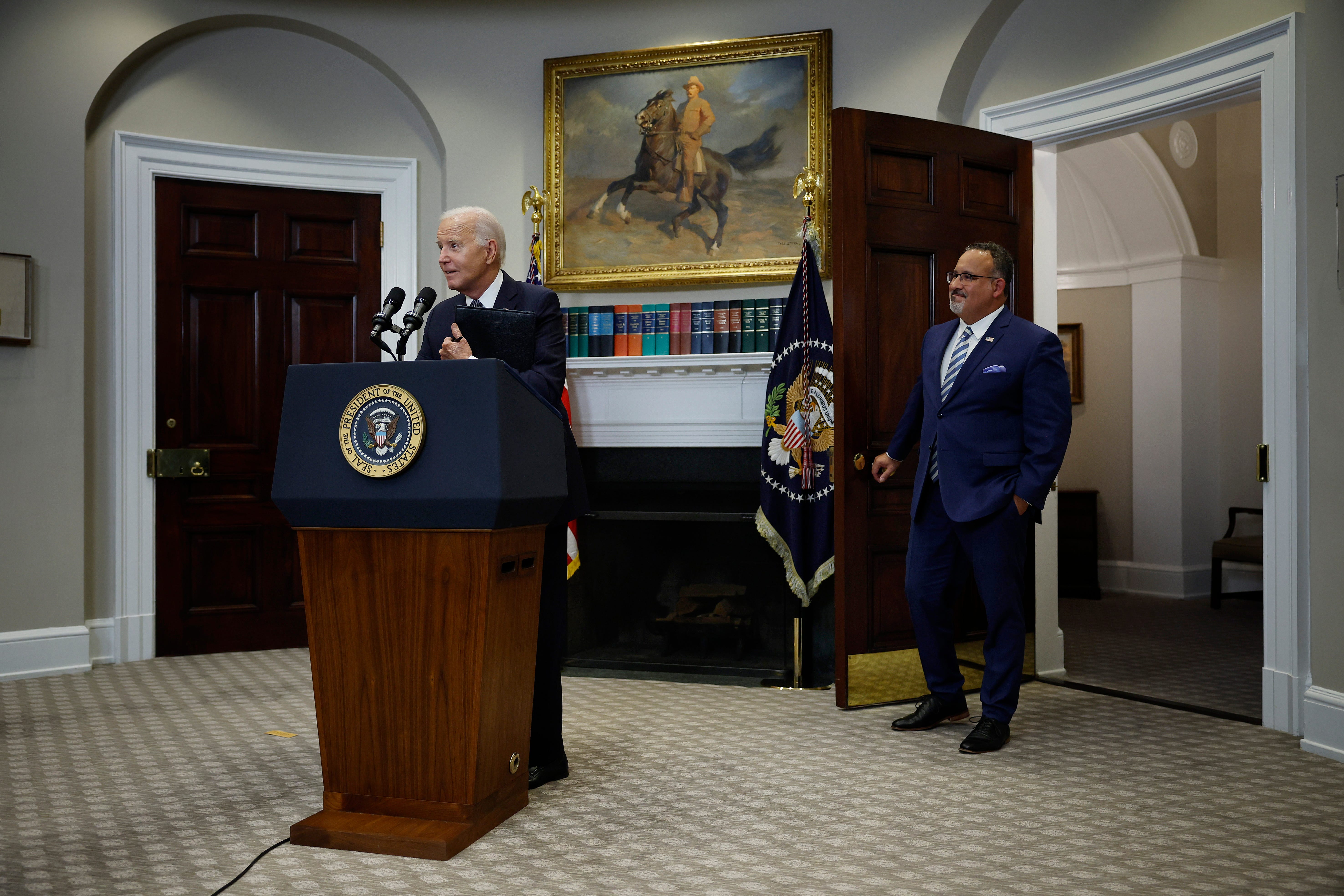President Joe Biden’s backup plan for delivering student debt relief is likely to face legal scrutiny, according to experts. The plan, which was announced after the Supreme Court ruled against Biden’s initial proposal, raises questions about the administration’s ability to fulfill its campaign promise without the support of Congress.
The Supreme Court’s ruling stated that Biden exceeded his authority when he used the HEROES Act to forgive up to $20,000 in student debt. In response, Biden announced that he would pursue debt relief under the Higher Education Act of 1965, describing it as “legally sound” but acknowledging that it would take longer to implement.
The HEROES Act allowed the secretary of education to “waive or modify” loan terms, while the Higher Education Act permits the administration to “compromise” loans and forgive them in specific circumstances. However, the “compromise” language has traditionally been understood to give the department the power to reduce loans on a case-by-case basis, rather than as a blanket authority to forgive debt.
Experts have raised concerns about whether a similarly sweeping debt relief program would be supported under the Higher Education Act. They argue that the court is unlikely to reach a different result under language that is very similar to the HEROES Act.
Biden’s new proposal has not provided specific details, but he described it as “the best path that remains to providing for as many borrowers as possible with debt relief.” Some experts suggest that the administration could craft a narrower program to withstand legal scrutiny, although this may draw criticism from liberals within the party.
Supporters of Biden’s latest effort argue that the Higher Education Act clearly outlines the administration’s power to forgive debt. They point out that the provision of the law in question does not include limiting language, and therefore, the administration has the authority to take action.
The Supreme Court’s conservative majority has become increasingly skeptical of significant policies from federal agencies that do not have explicit approval from Congress. Chief Justice John Roberts, writing for the majority in the recent student loans case, stated that the HEROES Act’s language did not give the Department of Education broad authority to forgive student loans. Critics argue that the Higher Education Act has never been used for broad forgiveness in the past.
The court’s conservative majority has relied on similar logic in previous cases, such as preventing Biden from extending an eviction moratorium and invalidating an EPA effort to regulate power plant emissions. They argue that regulations can be struck down in “extraordinary cases” when they are not explicitly permitted by law.
The Higher Education Act does authorize certain forms of relief in specific situations, such as for borrowers who were defrauded by for-profit colleges. The Biden administration reached a settlement last year to provide debt relief to 200,000 borrowers in that situation.
It remains to be seen how the administration will proceed with its backup plan for student debt relief and whether it will withstand legal scrutiny.

What are the legal basis and potential challenges to President Biden’s use of the Higher Education Act for student debt forgiveness?
Act, especially considering the court’s ruling against Biden’s use of that act.
Furthermore, legal experts point out that the Higher Education Act does not explicitly grant the administration the authority to forgive student debt. Instead, it gives the Department of Education the power to compromise or adjust loan terms in specific circumstances such as death, disability, or closed school discharge. This raises questions about the legal basis for a broad forgiveness program.
Some experts argue that Biden’s backup plan could face legal challenges similar to those faced by the HEROES Act. They believe that a court could find that the administration exceeded its authority by forgiving student debt without clear authorization from Congress.
In addition to legal concerns, there are also practical hurdles to implementing a debt relief program under the Higher Education Act. The act requires the administration to negotiate loan compromises with individual borrowers, a process that could be time-consuming and resource-intensive.
While Biden has expressed confidence in the legality of his backup plan, critics argue that it is an inadequate solution to the student debt crisis. They argue that comprehensive debt relief would require congressional action and that the administration’s reliance on executive authority is a short-term fix that may not hold up to legal scrutiny.
Overall, the legal viability of President Biden’s backup plan for delivering student debt relief is uncertain. While it may provide a potential path forward for the administration, experts believe that it is likely to face legal challenges and may not fully address the student debt crisis without congressional action.


President Biden’s backup plan for student debt relief raises important legal questions. While it may offer hope to struggling borrowers, it is crucial to carefully consider the legal implications and potential challenges that could arise. A thorough examination of this plan is needed to ensure fairness, transparency, and adherence to existing laws.